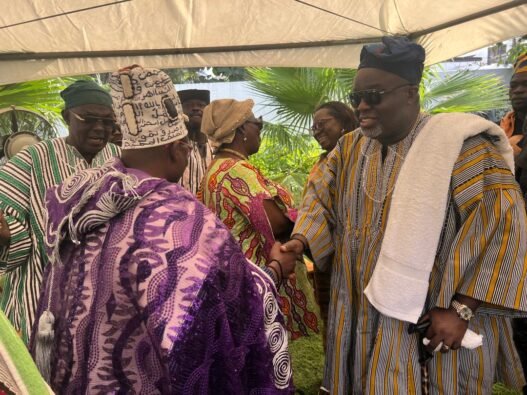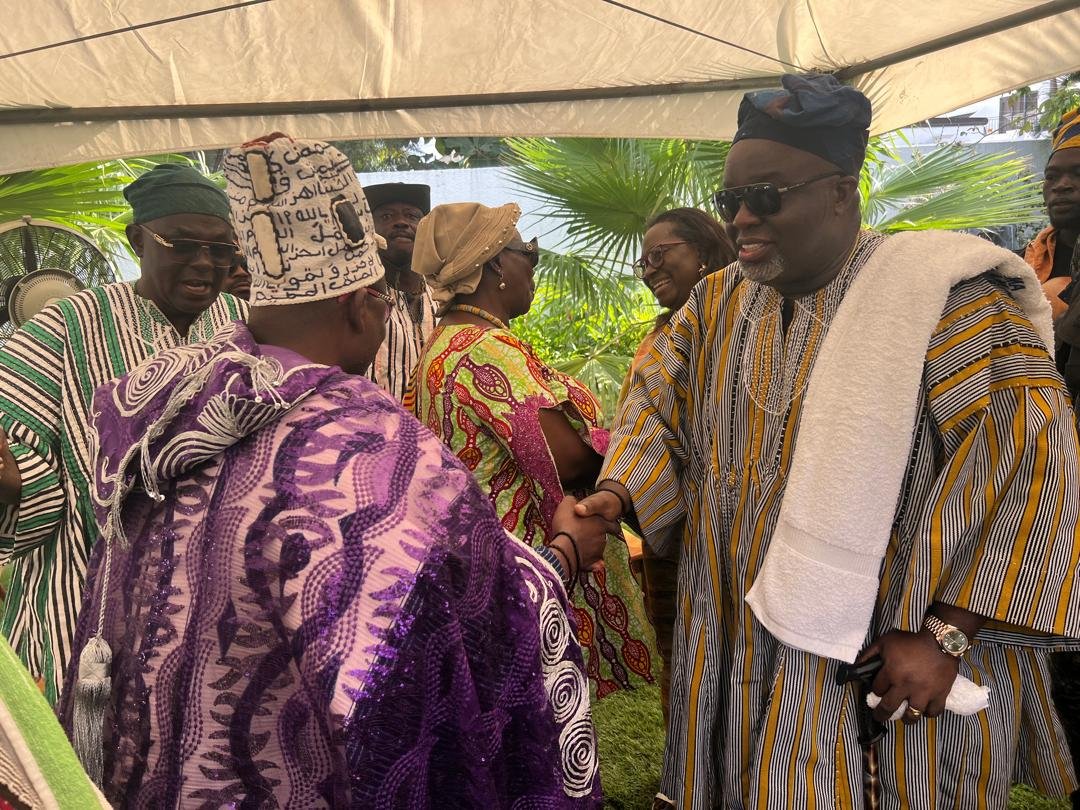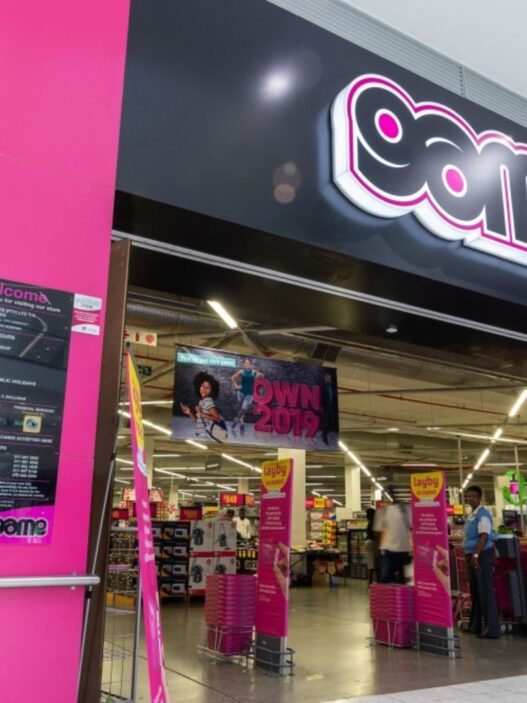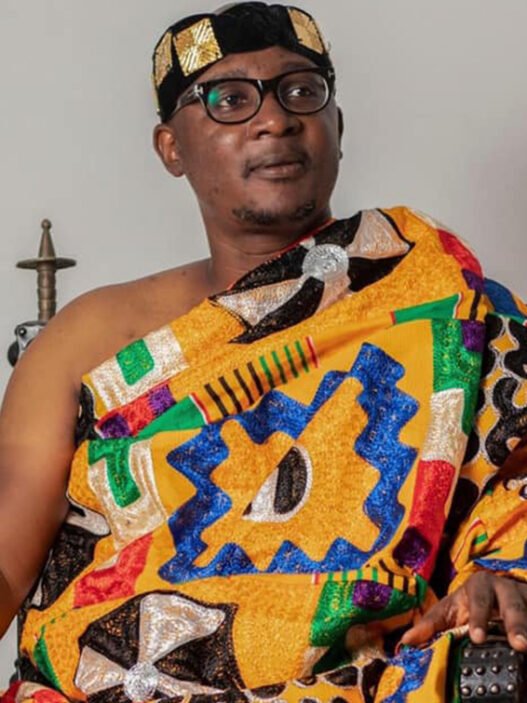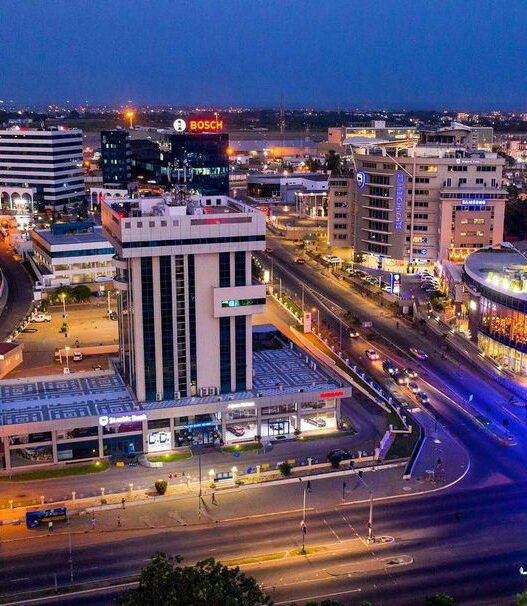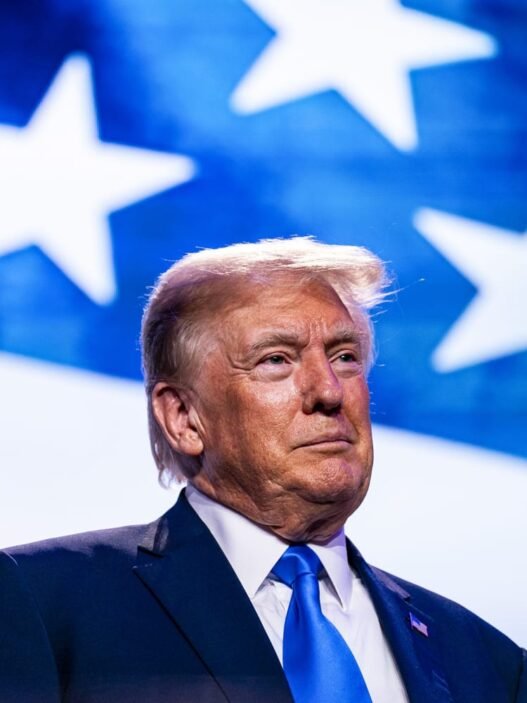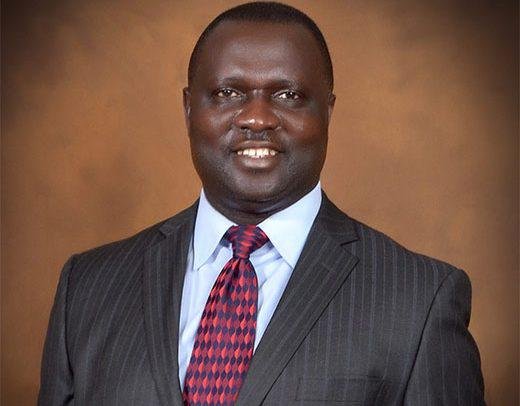On 28 September 2024, a significant courtesy visit unfolded at the private residence of Mr. Kofi Adomakoh, Managing Director of Ghana Commercial Bank (GCB). He and his beloved wife graciously hosted HRH Dapkem Ñaa Bawa Fuseini, the Tamale Dapkema of Dagbon, and HRM Obaatanpa Ama Eduwa I, Omanhemaa of the Gomoa Akyempim Traditional Area in the Central Region. The occasion was not only a reflection of mutual respect and friendship but also a platform to discuss profound matters shaping the socio-economic fabric of Ghana.
The occasion was not only a reflection of mutual respect and friendship but also a platform to discuss profound matters shaping the socio-economic fabric of Ghana.
The visit, which was graced by GCB senior executives, friends, and family, delved into vital discussions around women’s empowerment, financial inclusion, skill-based education, and environmental protection—four pillars that lie at the heart of GCB’s mission to drive transformative change within Ghana’s communities.
Empowering Women and Communities
Women’s empowerment emerged as a focal point of the discussions. Mr. Adomakoh’s vision aligns with GCB’s broader goal of empowering women to become active participants in their local economies. HRM Obaatanpa Ama Eduwa I, a leading advocate for gender equality in the Central Region, emphasized the importance of providing women with financial tools and educational opportunities that enable them to thrive. Current statistics indicate that women represent 50% of the Ghanaian population, yet they remain underrepresented in economic activities.
This dialogue resonated with the ongoing efforts of the Tamale Dapkema’s Palace, where HRH Dapkem Ñaa Bawa Fuseini leads initiatives that seek to uplift marginalized women in the Northern Region. Recent initiatives have reported a 30% increase in women’s participation in local markets, underscoring the need for a concerted effort to create economic opportunities for women, ensuring they can contribute meaningfully to the sustainable development of their regions.
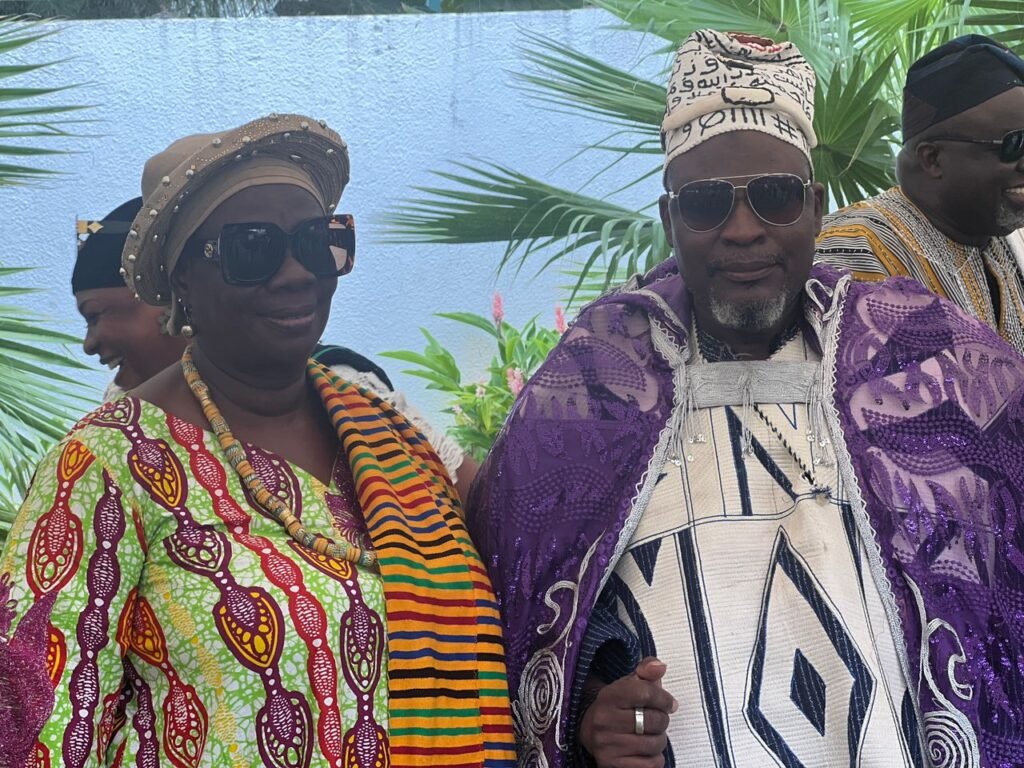
Advancing Financial Inclusion and Skill-Based Education
At the core of the gathering was also the issue of financial inclusion. Ghana Commercial Bank has long championed the cause of making banking accessible to underserved communities. Mr. Adomakoh reiterated GCB’s commitment to ensuring that individuals in remote areas, particularly in the Northern and Central Regions, have access to financial services that can empower them to build better futures. Currently, less than 35% of people in these regions have access to formal banking services.
Skill-based education was another critical topic. Both traditional leaders emphasized the importance of equipping the youth with practical skills that meet the demands of today’s economy. As Ghana transitions into a more knowledge-based economy, it is crucial to provide young people with relevant training and mentorship. A recent report from the Ghanaian Ministry of Education indicated that youth unemployment in the country stands at approximately 12%, highlighting the urgent need for skill development programs.
Honoring Commitment and Service
A highlight of the event was the recognition of Mr. Adomakoh’s enduring service and dedication to these causes. At a grand ceremony held earlier at the Tamale Dapkema’s Palace, Mr. Adomakoh was bestowed with the title Mangul-Naa, meaning “Guardian” or “Counselor.” This prestigious title is a testament to his unwavering commitment to advancing the growth of regional economies, particularly in underdeveloped areas.
Mr. Adomakoh’s honor reflects his leadership within GCB and his personal commitment to nurturing inclusive growth in Ghana. As Mangul-Naa, he is entrusted with the responsibility to counsel and guide emerging economies, helping them thrive while preserving the cultural and social values that define their communities.
A Gathering of Community and Family
Beyond the formalities of the visit, the event also stood as a celebration of community and family. GCB senior executives joined Mr. Adomakoh, his wife, friends, and family in welcoming the distinguished traditional leaders, creating an atmosphere of warmth and camaraderie. The gathering highlighted the interconnectedness of family, community, and leadership—values that continue to guide GCB’s corporate philosophy.
As discussions flowed and bonds were strengthened, it became clear that the combined efforts of individuals, families, and institutions like GCB have the power to create meaningful, lasting change in society.
Looking Ahead: A Shared Vision for Sustainable Development
As the visit drew to a close, there was a shared sense of optimism for the future. The discussions around women’s empowerment, financial inclusion, skill-based education, and environmental protection reaffirmed a collective commitment to building a more equitable and sustainable Ghana. Mr. Adomakoh’s role as Mangul-Naa positions him as a key figure in ensuring that these goals are not only pursued but achieved.
In partnership with traditional leaders like HRH Dapkem Ñaa Bawa Fuseini and HRM Obaatanpa Ama Eduwa I, GCB is poised to continue driving meaningful progress, transforming communities, and creating shared value for all.
Together, Building a Brighter Future
This remarkable courtesy visit exemplifies how leadership, tradition, and corporate responsibility can converge to inspire positive change. With the unwavering commitment of Mr. Adomakoh, GCB’s leadership team, and the support of Ghana’s esteemed traditional leaders, the future looks bright for the communities they serve.
Together, they are not just shaping policies—they are shaping lives, building a legacy of empowerment, inclusion, and sustainable growth for generations to come.









